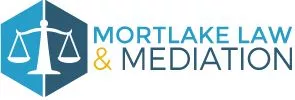- in Asia
In its opening line, Deputy Master Linwood noted, "This is an unusual probate claim in that the deceased says she is very much alive".
Background:
Ms. June Ashimola discovered, to her dismay, that a Grant of Probate had been issued in relation to her estate – primarily a house in London. Ms. Ruth Samuel, one of the defendants, holds a probate power of attorney in Form PA12 for Mr. Bakare Olatoye Lasisi, the second defendant. Mr. Lasisi claims to have married Ms. Ashimola in 1993. The two defendants provided a death certificate issued in Nigeria in February 2019, stating that Ms. Ashimola had died on the 6th of February 2019.
Ms. Ashimola entered the UK in about 1999. She lived with Mr. Shomotun and his family for a while before purchasing the property for £167,000 in 2023, a property that was registered solely in her name. In November, she instructed solicitors to act on her behalf as regards the sale of the house. Mr. Tony Ashikodi served a statutory demand upon her dated 27th December 2017, claiming she owed him £98,000. She applied successfully to set it aside by application notice.
The root of this claim is a long-running campaign waged by a Mr. Tony Ashikodi for control and/or ownership of the property. Ms. Ashimola left the UK for Nigeria in October 2018 and has not returned since.
Decision:
The Court revoked the grant of letters of administration issued on the grounds that the deceased, Ms. Ashimola, was still alive. After hearing her evidence, the Judge was convinced Ms. Ashimola was alive.
The Judge noted that he would have also revoked the grant alternatively because it was obtained through false, forged, or concocted documents, namely the marriage certificate, death certificate, and probate power of attorney. Moreover, it was clear that Ms. Samuel misled the Court, which would have resulted in a revocation under Sections 25(1) and 121 of the Senior Courts Act 1981 and/or the inherent jurisdiction of the Court.
The Court also discussed proportionality, or rather the lack thereof, as the estimated equity of the property was around £172,000, while the parties' combined legal costs had already reached approximately £151,000.
The Judge also commented on the manner in which the trial was conducted, especially concerning the bundles as "The hard copy has four separate sections with a different index and numbering for each. It is difficult to navigate and follow." Deputy Master Linwood commented, "I said to Mr. Ebuzoeme that I could not follow his skeleton argument, despite spending considerable time trying to cross-refer, as his page references bore no resemblance to the trial bundle pages."
Implications:
While those sets of facts are extraordinary, this decision demonstrates that a Grant of Probate can be challenged and overturned if the probate was obtained improperly or fraudulently. This case is a good reminder that it is never 'too late' to bring a probate claim, as courts have the power to revoke the Grant of Probate on certain grounds.
Beyond the unusual facts, the case serves as a cautionary tale about excessive litigation costs. This case highlights the risk that legal fees could consume the very inheritance the parties are fighting over.
This decision also underscores the need for parties to use appropriate software (the reason the bundle was divided into four separate PDFs was that parties could not transfer them due to their size). Having a consistent bundle with good indexing facilitates the trial for all parties involved.
Source:EWHC | 09-04-2025
The content of this article is intended to provide a general guide to the subject matter. Specialist advice should be sought about your specific circumstances.

